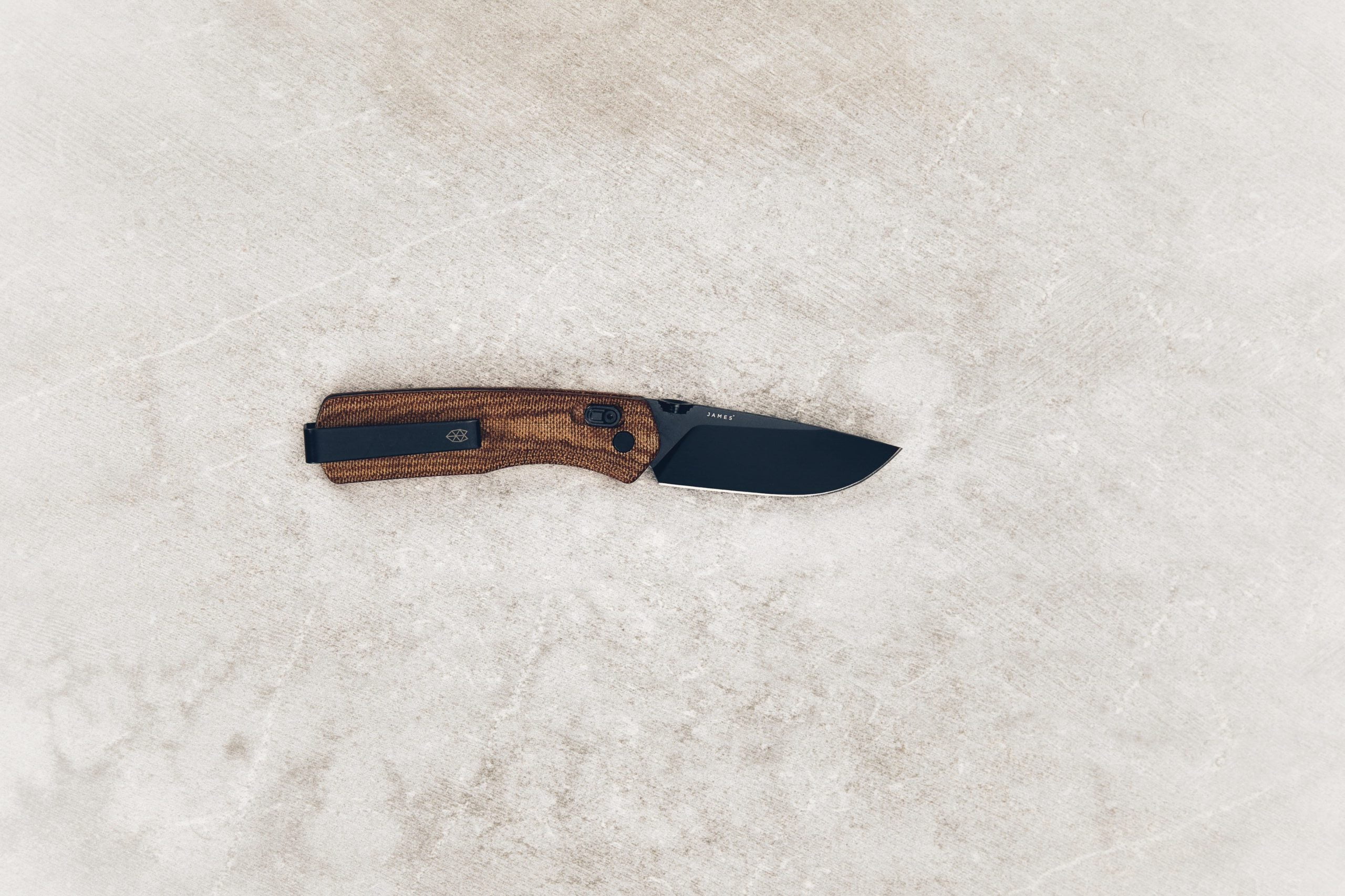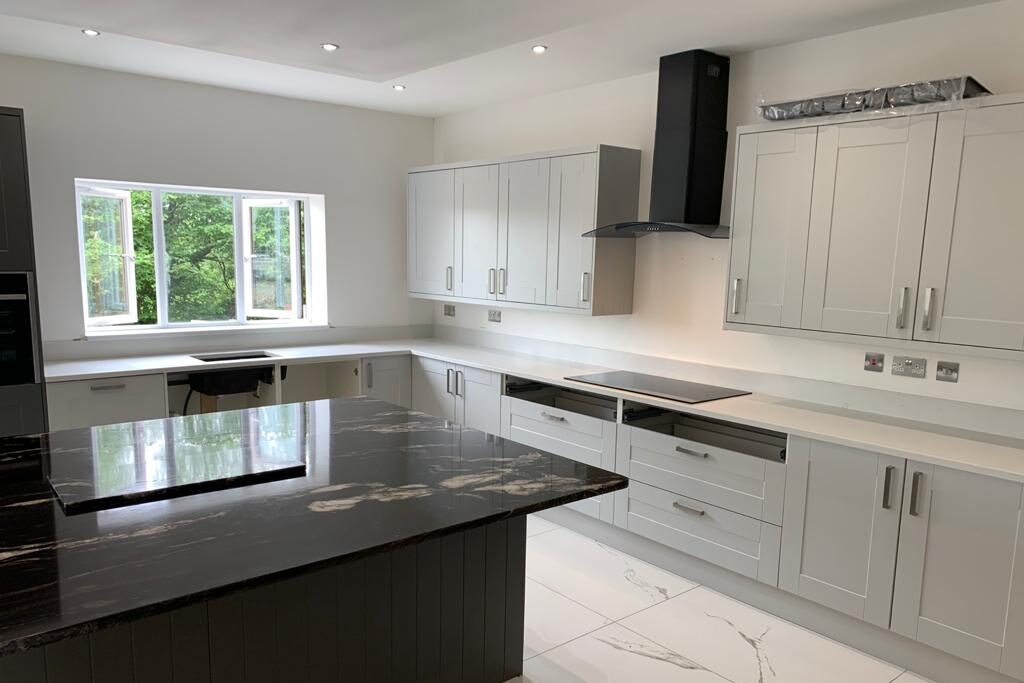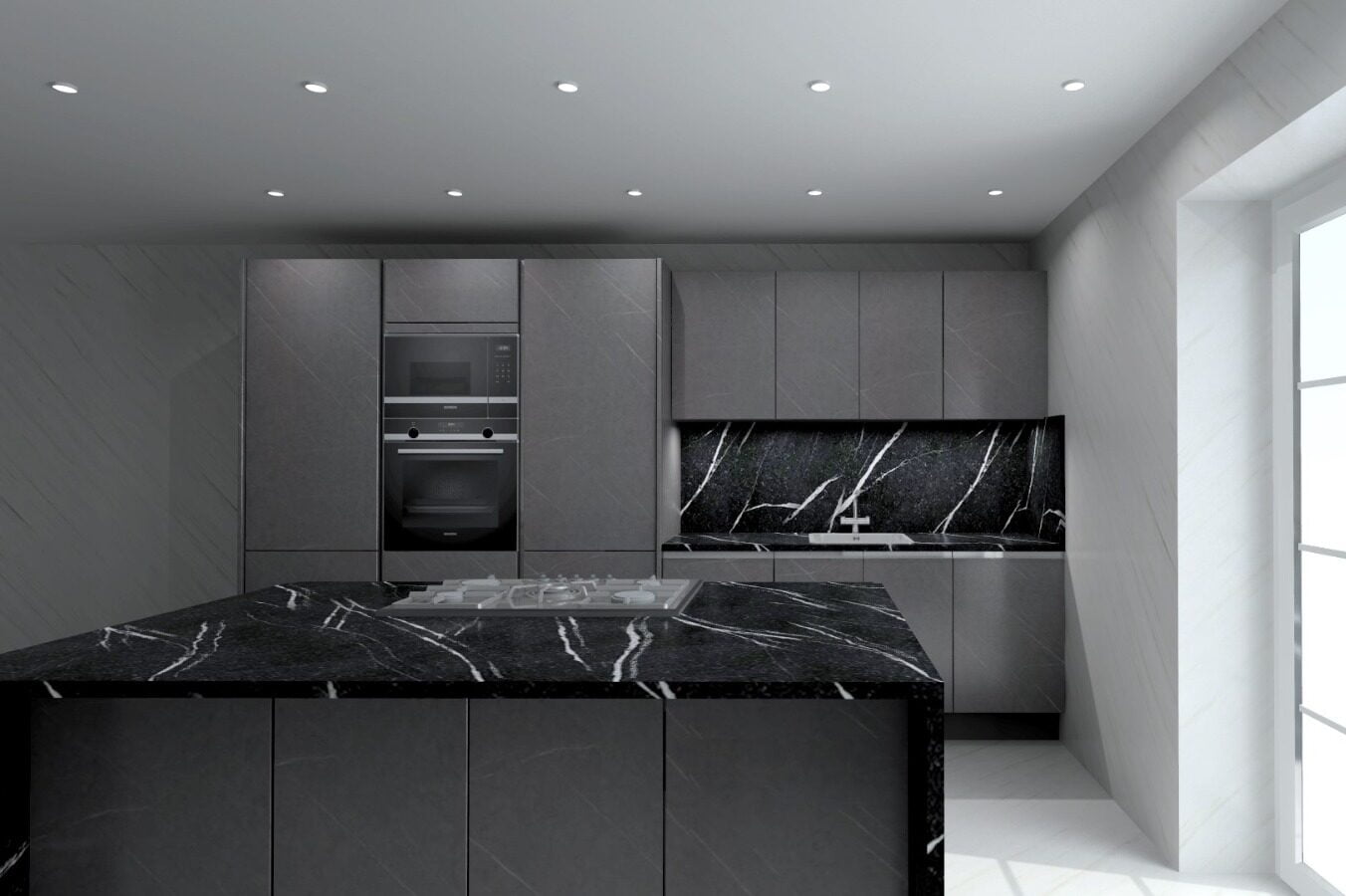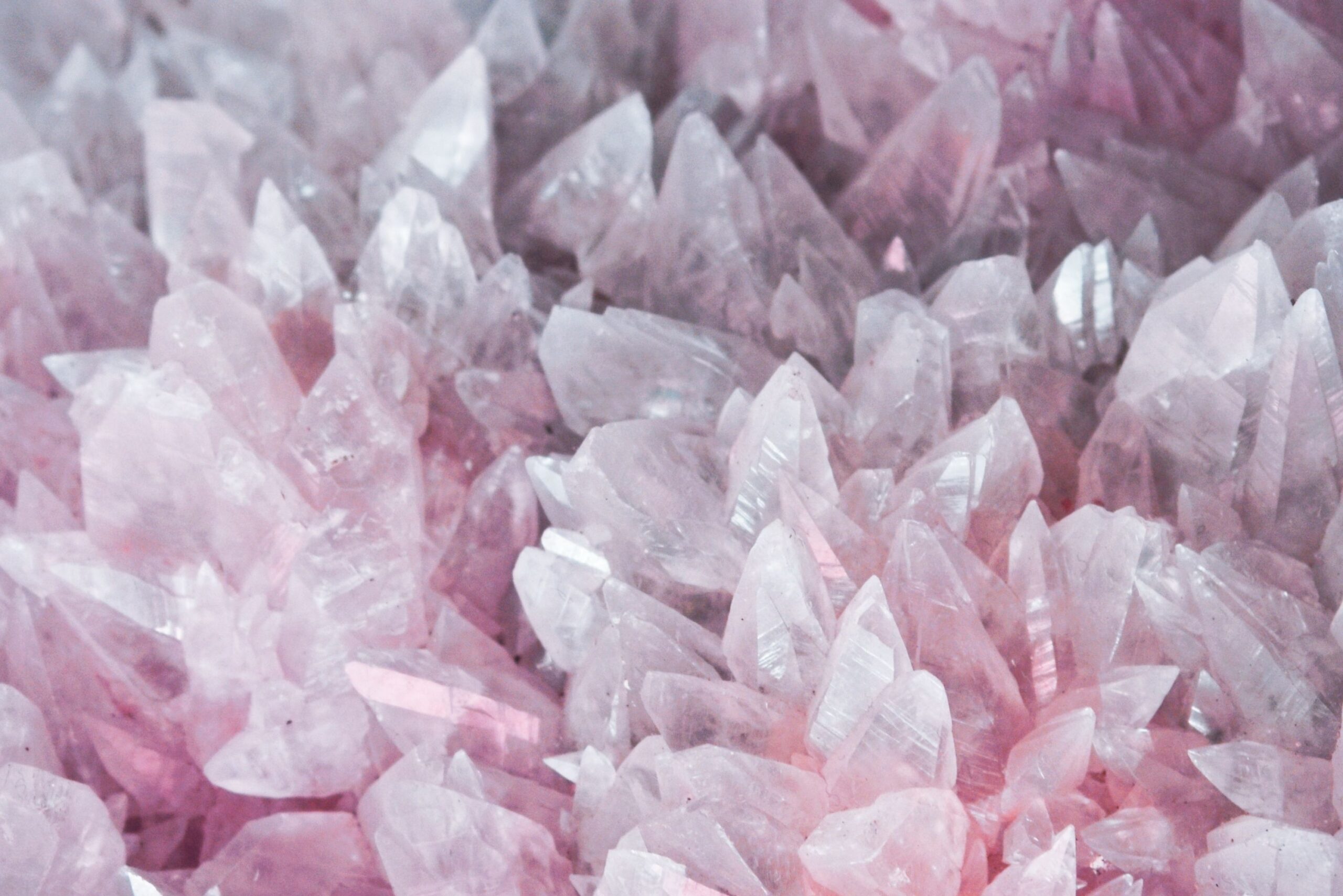Why Quartz is Extremely Resistant to Scratching
Previously, we discussed the composition of Quartz, and the formation of natural Quartz crystals. Quartz crystals are very strong and highly resistant to scratching or damage, and this is because they are formed as a result of high pressure bonding of elements.
Quartz slabs are formed of around 93% quartz crystals, ground into dust. Therefore, as you can imagine, Quartz worktops and surfaces are extremely durable, and do not scratch easily. Moreover, because the crystals are ground into Quartz dust, each dust particle does not have much of a surface area exposed, and so it is extremely hard to scratch them.
Even though Granite also consists of quartz crystals, and also results from magma cooling down, it contains many other minerals such as feldspar, mica, amphiboles and many more. These other minerals have much less strength, and so they make Granite a little more prone to scratching compared to Quartz. In addition, Granite is formed from whole minerals and crystals, rather than dust particles, and so due to their large exposed surface area, they are more prone to scratching.
Knowing all of this, it would seem like Quartz is completely anti-scratch. However unfortunately, it is not completely scratch resistant, and this is because Quartz also contains around 7% resin, pigments, adhesives and other materials, which are not as strong as Quartz dust particles, and so they are much more prone to scratching. Consequently, it is these parts of Quartz that scratch if they are scraped at very high strength with a very sharp object.
However, generally speaking, Quartz is still amongst the most scratch resistant stones that can be used as a worktop, and it is becoming more common across the market due to its strength, durability, attractiveness and price.




